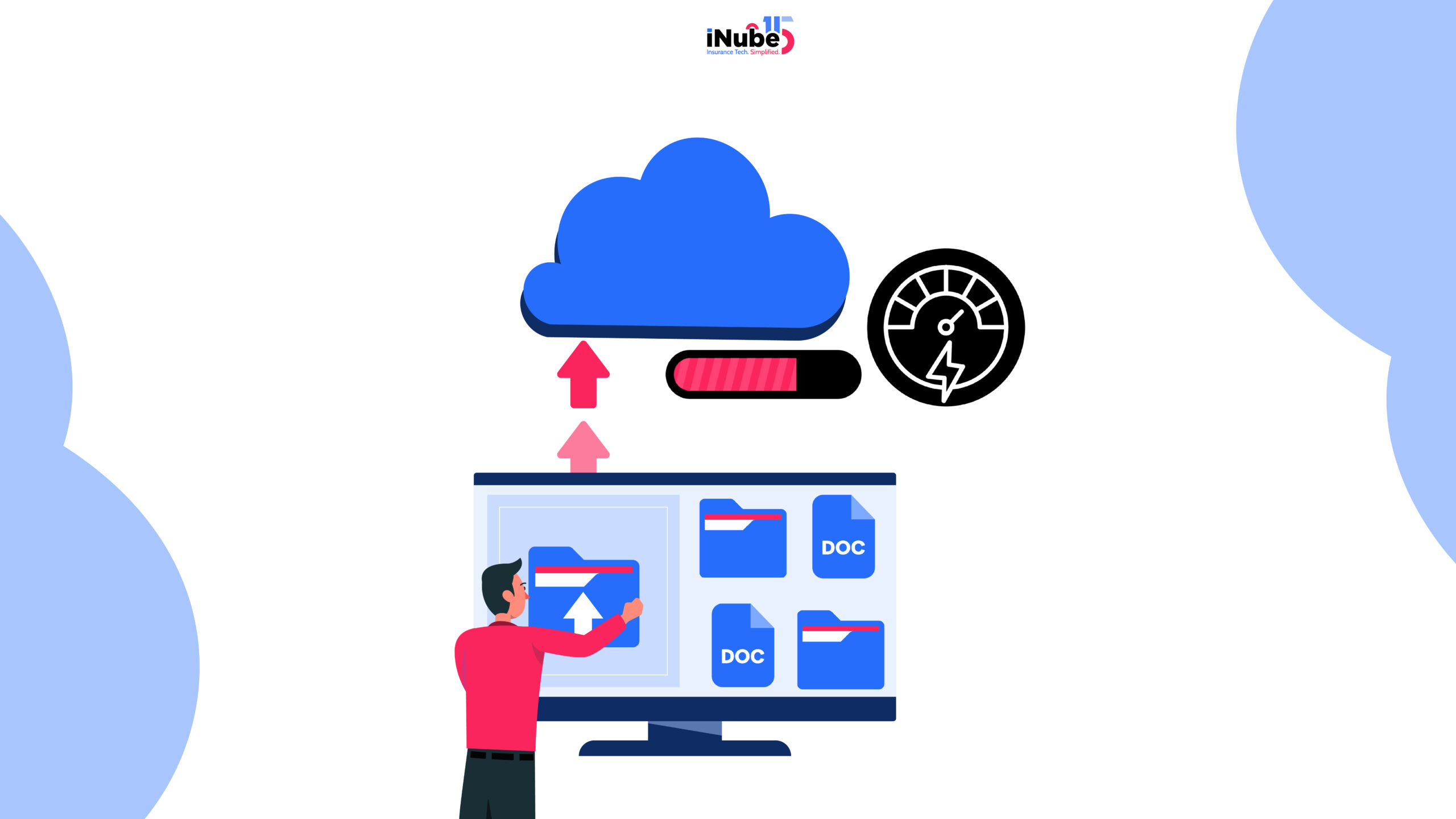If data is the currency of insurance, then speed has become a definitive competitive edge in insurance, primarily because of the evolving customer expectations for an immediate service. The intense market competition from agile Insurtech firms to significant operational and financial benefits is derived from the faster processes. However, a key long-standing hurdle in the industry still dominates —legacy systems. The legacy systems and static data models limit responsiveness. With cloud platforms redefining the insurance operations, unlocking speed and efficiency for insurers and policyholders will be quite simple.
The Shift Toward Cloud Computing in Insurance
While the contemporary insurance landscape is being driven by cloud platforms, the transition from legacy systems to these cloud platforms has not been easy. The evolution from legacy IT to cloud-based software was essentially driven by the growing need for agility and speed, followed by staying competitive in the market. Speed and efficiency have become non-negotiable, and operating legacy systems will result in holding back while the industry changes.
This is a transition that has enabled modern-day insurers to keep pace with the modern customer expectations for personalized products and seamless digital experiences.
Here are the drivers of this transition:
Operational Flexibility
The cloud environments empower the insurers to experience operational elasticity, as they are capable of scaling dynamically with transaction volumes and data demands.
Integrated Intelligence
With the AI and ML technology embedded within the cloud insurance solutions, the insurers get an upper hand in predicting the behaviors, detecting anomalies, and personalizing the products in real-time.
Regulatory Maturity
The cloud providers are now aligning with the region-specific compliance frameworks, enabling the insurers to maintain compliance while expediting innovation.
In essence, the insurance digital transformation in 2025 is not a migration but a reimagination of the way insurance is operating with speed and efficiency today.
How Cloud Platforms Unlock Speed?
While cloud platforms are speeding up insurance processes, they are unlocking speed for insurers in ways that were previously unthinkable. Today, the cloud platforms are unlocking speed for insurers primarily through on-demand resource provisioning, automation of development pipelines, and built-in scalability and elasticity, which will together dramatically accelerate the software delivery, operational efficiency, and time to market.
These are the top ways by which cloud platforms are unlocking speed and agility for insurers:
Faster Positioning of Resources
The cloud platforms essentially allow developers to provision servers, storage, and other IT infrastructure in minutes or seconds using web consoles or APIs, thereby eliminating a significant amount of time required for hardware procurement and setup in traditional on-premises environments.
Accelerated Operations
Underwriting, claims processing, and policy administration are pivotal processes of the insurance value chain that require a tedious amount of effort and time. With cloud platforms coming into the picture, these processes are automated without any compromise on speed, efficiency, and accuracy.
Faster Time-to-Market
Another one of the keyways by which cloud platforms unlock speed is by enabling faster time to market. The insurers are leveraging cloud platforms with integrated cloud tools to quickly develop, test, and deploy new products without any major investment in the physical infrastructure.
In a recent study by Forrester, it was highlighted that 38% of insurance firms cited improving speed to market as a key benefit of cloud native development initiatives. This is a key step towards shortening the gap from idea to market launch, thus enabling the insurers to adapt swiftly to new trends and customer needs.
Enhanced Customer Experience
The cloud-based portals and the mobile apps offer customers around-the-clock access to managing their policies, filing claims, and receiving real-time updates, leading to faster service and increased satisfaction.
Additionally, these platforms support hyper-personalization features- enabling the insurers to analyze the customer data from various touchpoints, create highly personalized product offerings and tailored communications, thereby improving the engagement and the retention rates.
The Intelligent Data Advantage for Insurers
Leveraging cloud-based platforms isn’t just enough; instead, reaping adequate benefits out of it is, and how the static data is converted into continuous intelligence. By seamlessly integrating into structured and unstructured datasets- the policyholder behavior, IoT feeds, telematics. Along with social sentiment- the insurers will be gaining predictive visibility across the insurance value chain.
The insurers are leveraging predictive analytics and Machine learning driven insights that help identify the emerging risks, personalize coverage, and optimize claims ratios. This marks an extremely important shift from the reactive operations to a proactive strategy. This is exactly where data doesn’t just support decisions but leads them.
The Way Forward
While the insurers slowly transition to cloud-based platforms, these will become the key accelerator of the modern-day insurance enterprise. The future belongs to the insurers who combine data, agility, and intelligence.

Archismita Mukherjee
Insurance Content Analyst

